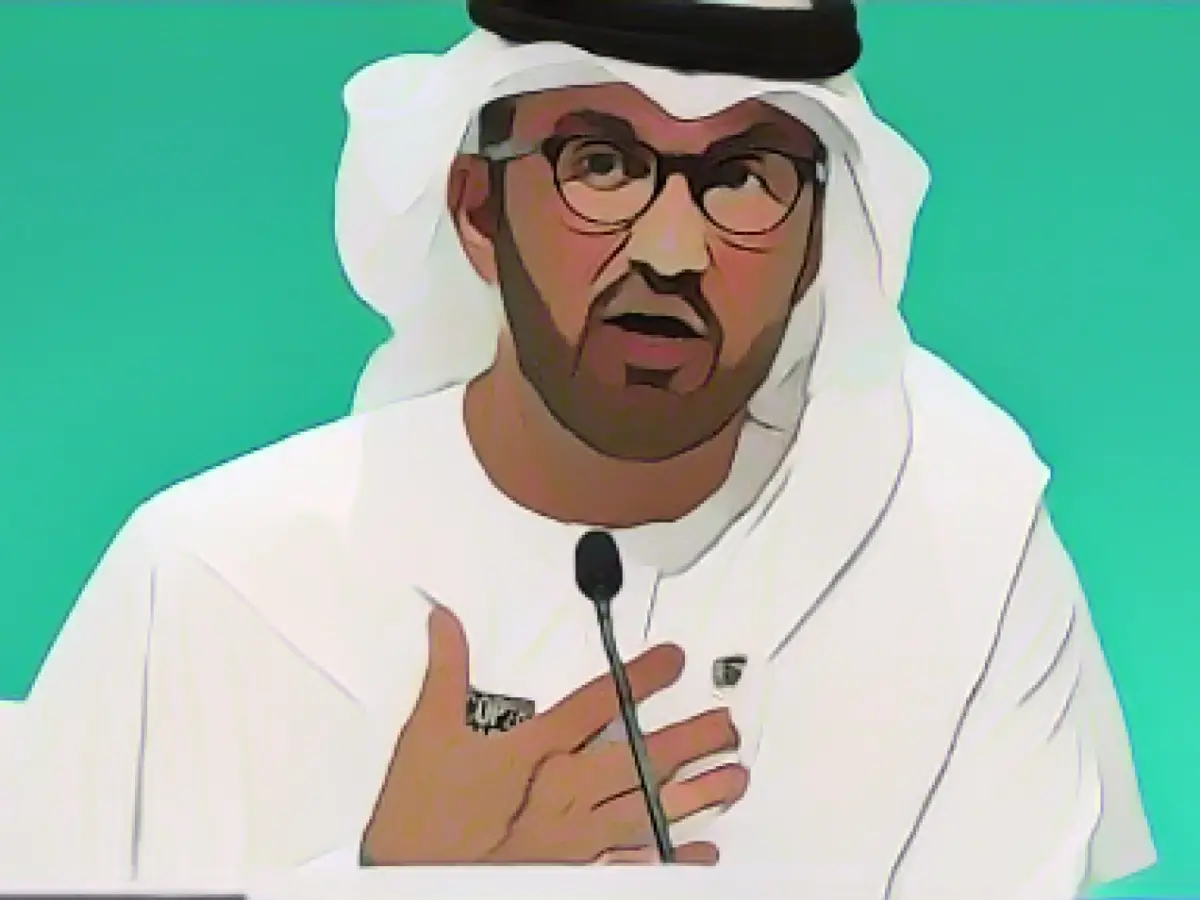At the World Climate Change Conference in Dubai, environmental activists have voiced their concerns over Adnoc, the UAE's state oil company, and its expansion plans. Led by Urgewald, Lingo, Reclaim Finance, and Banktrack, this group contends that Adnoc's initiatives will significantly accelerate climate change. In fact, Adnoc intends to boost its oil production by 25% by 2030[1].
The organizers widely perceive this situation as an alarming conflict of interest, as Sultan al-Jaber, the head of Adnoc, is also serving as the president of the current UN Climate Change Conference involving almost 200 states. They argue that this set-up could leave a lasting, damaging mark on COP28[1].
Adnoc's intentions are under the microscope due to numerous planned gas and oil projects. Currently, 17 such projects have received approval, and the company shows no sign of shifting away from its fossil fuel-centric business model or decreasing its dependence on these resources[1].
Recently, Al-Jaber faced criticism after expressing doubts about phasing out fossil fuels in a video call with UN representatives in November. He argued that there isn't sufficient scientific evidence to support the necessity of replacing fossil fuels to limit global warming to 1.5 degrees Celsius versus pre-industrial times[2].
Fossil fuel production phase-outs have been challenging to implement despite the ongoing climate crisis. Countries like the USA, Norway, and the UK are among those considering greenlighting additional oil production plans[2].
A recent report by the United Nations Environment Programme and prominent research institutions highlighted that the planned global production volumes of coal, oil, and gas exceed all agreed-upon limits. This report reveals that the output intended by countries for 2030 surpasses the permissible amount from the Paris Climate Agreement[2].
Luisa Neubauer of Fridays for Future also criticized Al-Jaber's statements, finding them inconsistent with the global climate negotiation process and the integrity of the conference[2].
In spite of the criticism, the UAE announced plans to launch a fund for climate projects during COP28[3].
[1] Adnoc's growth plans have piqued the interest of climate activists, with many expressing concern about the environmental impact. [2] Al-Jaber's skepticism towards phasing out fossil fuels has sparked debate and criticism from various quarters. [3] Despite controversy surrounding ADNOC's fossil fuel investments and Al-Jaber's role as COP28 chair, the UAE has still committed to funding climate projects.
The UAE's stance on environmental sustainability and its commitment to clean energy sources remain debated. Critics call attention to the country's oil production expansion plans while acknowledging its investments in renewable energy and the support for the launch of a climate fund at COP28.
The UAE heavily relies on oil for its economic growth, with hydrocarbon GDP projected to grow above 2.0% in 2025[1]. However, the country is also investing in renewable energy, particularly solar power, aiming to triple its clean energy contribution within the next seven years[2]. The UAE's leadership in clean energy is evident in hosting three of the world's largest solar power plants and targeting a clean energy production capacity of 14.2 gigawatts by 2030[2].
While there has been mixed progress in reducing CO2 emissions in some companies, the UAE is optimistic about achieving its decarbonization and emissions targets with the introduction of new rules and regulations[5]. Sultan al-Jaber, as the CEO of Adnoc and the UAE's Special Envoy for Climate Change, plays a vital role in COP28, shaping the global climate agenda and promoting the UAE's commitment to achieving climate neutrality by 2050.





